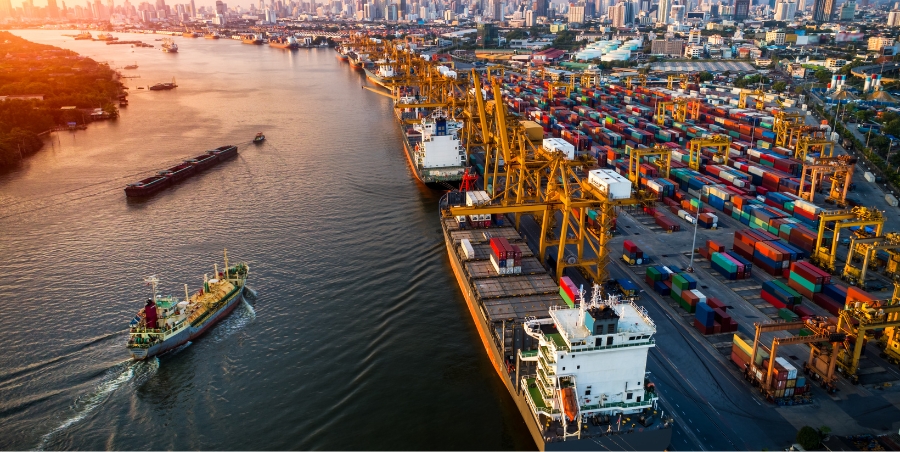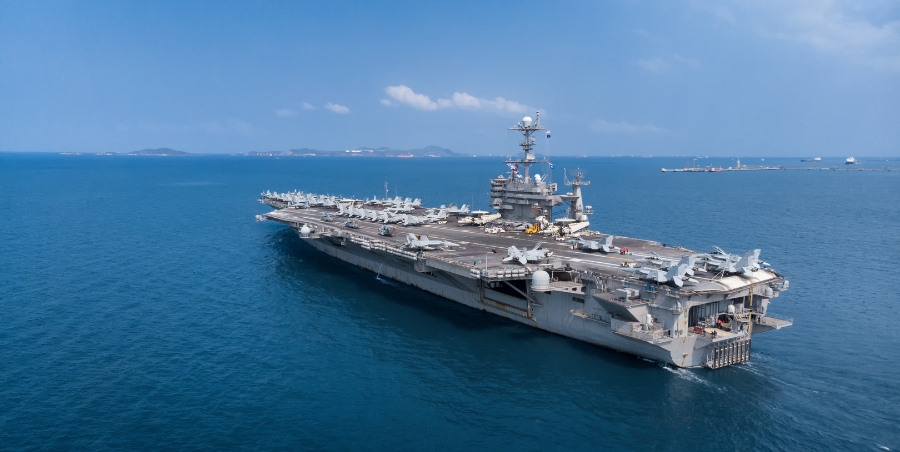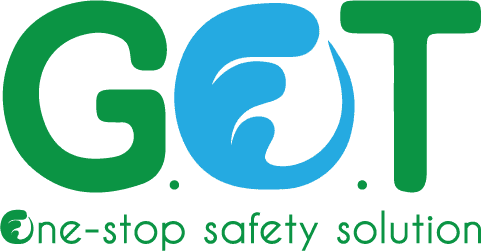What is Safety Management System (SMS)?
What is Safety Management System (SMS)?
Safety Management System (SMS) is an organized system planned and implemented by maritime transportation companies to ensure safety for vessels and the marine environment.
SMS is an integral aspect of the International Safety Management (ISM) Code detailing all essential policies, practices, and procedures to be adhered to for ensuring the safe operation of vessels at sea. All commercial ships are required to establish ship safety management procedures.
>>>Learn more about what ISM Code
It ensures that every vessel complies with mandatory safety rules and regulations, and adheres to codes, guidelines, and standards recommended by IMO, classification societies, and relevant maritime organizations.
Contents of Safety Management System
Each safety management policy must meet several basic requirements to ensure safety for all vessels. These requirements include:
- Procedures and instructions for actions in emergency situations
- Safety and environmental protection policies
- Procedures and instructions for reporting accidents or any form of non-compliance
- Clear information on authority levels and communication lines between shipboard members, and between shore-based personnel and onboard crew
- Procedures and instructions to ensure the vessel’s safe operation and environmental protection in compliance with international and flag state regulations
- Internal audit procedures and management review
- Vessel details
In short, the safety management system will encompass details on the vessel’s daily operations, procedures to be followed in emergency cases, drills and training methods, measures to ensure safe operations, designated personnel responsibilities, and more.

The primary responsibility of safety management plan lies with the shipowner, or the designated person, or the person appointed by the shipowner. However, the captain and the crew are the best individuals to implement SMS as they have a thorough understanding of the vessel inside out.
Components of Safety Management System
SMS is divided into several parts for easy reference. These include:
- Overview
- Safety and environmental policies
- Designated Person (DP)
- Resources and personnel
- Responsibilities and authority of the captain
- Responsibilities and authority of the company
- Operational procedures
- Emergency procedures
- Accident reporting
- Maintenance and records
- Documentation Review and assessment
These are the main components of a basic SMS; however, the plan may vary depending on the type of vessel and the cargo it carries.
Considerations for Ships Implementing Safety Management System (SMS) under ISM Code
It is the duty of every crew member of the ship to fully understand the company’s SMS and implement it effectively, while also meeting the requirements of ISM inspections (Internal or External Audit) as well as PSC inspections.
Depending on their position, there may be varying levels of requirements, but generally, crew members need to understand and grasp the following issues:
- Does the company have safety and environmental protection policies? Are the crew members familiar with these policies?
- Are safety documents such as manuals, guidelines, etc., available on board?
- Are the relevant documents in the SMS organized in an understandable language?
- Are there procedures to establish and maintain communication with shore management in emergency situations?
- The ship’s training plan according to SMS
- Plans, procedures for use, testing, and maintenance of important equipment on deck as well as safety equipment of the vessel as instructed in the SMS.
- Regulations, instructions for pollution prevention, compliance with waste management plans on board.
- Safety check rules before carrying out specific tasks on the ship, especially working at heights, outside the ship’s side, welding, working in confined spaces… as stipulated in the SMS.
- Name of the Designated Person (DP)
- Their duties, responsibilities according to the company’s SMS
- How new crew members familiarize themselves with their duties and receive important instructions before departure?
- Can the captain present documents proving their responsibilities and authority (including the authority to exceed authority)?
- Are non-conformities reported to the company and are corrective actions taken?
- Does the ship have a maintenance program and are records kept on board?
- Their duties in emergency situations on board, alarm signals, as well as the procedures, instructions for handling these cases as stated in the SMS.
- Recording and maintaining logs of work, materials, equipment within their responsibility as instructed in the SMS.
Reports According to SMS Regulations
According to SMS regulations, reports are periodically submitted to the company and kept on board. These reports include:
- Monthly Reports: List of ship document checks; Crew list.
- Voyage Reports: Summary of voyage itinerary (both deck and engine department); Reports on planned maintenance work during the voyage (both deck and engine); List of safety equipment checks; List of environmental pollution prevention equipment checks; List of steering gear checks; List of navigational equipment adjustments; Main engine parameters; Generator parameters; Lubricating oil consumption report; List of port arrival and departure checks…
- Quarterly Reports: Minutes of safety management meetings on board; Emergency drill reports; Onboard training reports; Cooling water analysis report; Boiler water analysis report; Record of working hours for ship’s machinery systems; List of insulation checks…
- Biannual and Annual Reports: Status of safety equipment; Status of important equipment; List of maritime publications; List of ship’s measuring equipment checks; List of important spare parts checks…
- Reports in Special Cases: Reports in the event of a maritime accident; Reports on damage caused by stevedores; Reports on damaged cargo; Reports on accident investigation; Non-conformity reports; Reports on repair of damages; Fuel reception plans; List of checks when entering confined areas; List of checks when using open flame on board; Crew competence assessment reports…

SMS plays a crucial role in the implementation of the ISM Code on ships. The execution and maintenance of SMS are not only the responsibility of the shipowner and the designated person but also require active participation from the captain and the crew. Their deep understanding of the ship and its daily operations is a key factor in ensuring the effective functioning of SMS.
We cannot deny the significant benefits that SMS brings, from protecting human lives and property, safeguarding the marine environment, to improving operational efficiency and legal compliance. Therefore, emphasis on and compliance with SMS regulations are essential and crucial for all stakeholders in the maritime industry.

